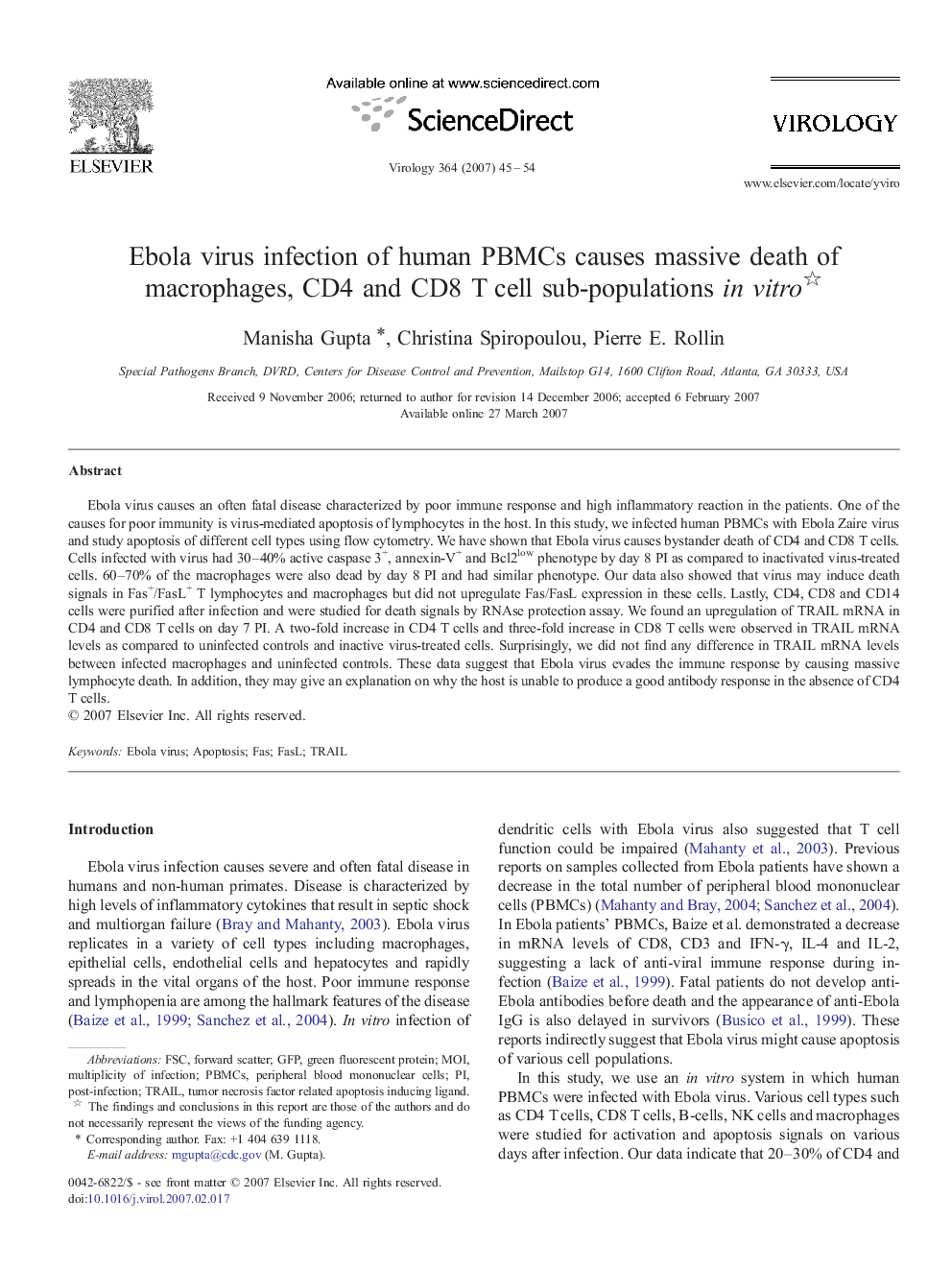| Article ID | Journal | Published Year | Pages | File Type |
|---|---|---|---|---|
| 3427277 | Virology | 2007 | 10 Pages |
Ebola virus causes an often fatal disease characterized by poor immune response and high inflammatory reaction in the patients. One of the causes for poor immunity is virus-mediated apoptosis of lymphocytes in the host. In this study, we infected human PBMCs with Ebola Zaire virus and study apoptosis of different cell types using flow cytometry. We have shown that Ebola virus causes bystander death of CD4 and CD8 T cells. Cells infected with virus had 30–40% active caspase 3+, annexin-V+ and Bcl2low phenotype by day 8 PI as compared to inactivated virus-treated cells. 60–70% of the macrophages were also dead by day 8 PI and had similar phenotype. Our data also showed that virus may induce death signals in Fas+/FasL+ T lymphocytes and macrophages but did not upregulate Fas/FasL expression in these cells. Lastly, CD4, CD8 and CD14 cells were purified after infection and were studied for death signals by RNAse protection assay. We found an upregulation of TRAIL mRNA in CD4 and CD8 T cells on day 7 PI. A two-fold increase in CD4 T cells and three-fold increase in CD8 T cells were observed in TRAIL mRNA levels as compared to uninfected controls and inactive virus-treated cells. Surprisingly, we did not find any difference in TRAIL mRNA levels between infected macrophages and uninfected controls. These data suggest that Ebola virus evades the immune response by causing massive lymphocyte death. In addition, they may give an explanation on why the host is unable to produce a good antibody response in the absence of CD4 T cells.
